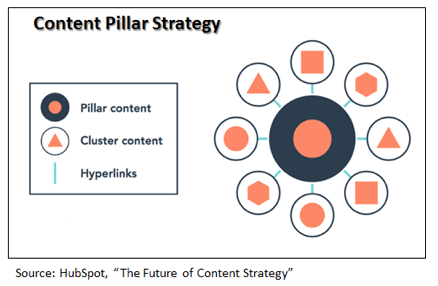Marc Rosenberg, a consultant of some note for CPA firms, recently published an article on his blog called, “How Marketing Personnel Keep Their Jobs”
 He noted (with a fair amount of incredulity) that, according to his sources, “the average tenure of a marketing director or coordinator at a CPA firm is 18 months”. This stat generated a number of comments, and some powerful insights from a few experienced marketing directors like Katie Tolin who replied:
He noted (with a fair amount of incredulity) that, according to his sources, “the average tenure of a marketing director or coordinator at a CPA firm is 18 months”. This stat generated a number of comments, and some powerful insights from a few experienced marketing directors like Katie Tolin who replied:
“The problem is too many partners think marketing is something a monkey can do (a real quote I recently heard from a partner). They also think marketing is one-size-fits all when, in reality, it too is a specialized discipline… market strategy, market research and analysis, digital marketing, PR, sales support, social media, digital marketing, content marketing and so on. Until we are able to change this mindset and get partners to see the value of marketing and give marketing a seat at the table, average tenure will never be as high as it should.”
Hmmmm... What About the Responsibilities of the Firm’s Partners?
Marc’s blog was about how, where, when and why marketing directors could succeed in their role, and he proceeded to discuss 9 ways to make this success happen. I agree with every single one of Marc’s points, because marketing directors do need to be accountable for their success in what’s a very difficult environment.
But I have to admit that I was quite perplexed because nowhere was there a discussion of how partners could make marketing successful. A takeaway from reading his post is that the firm’s success in marketing lies mostly on the shoulders of the marketing director, like his observation that “marketing directors should make sure the firm understands the difference between marketing and selling.”
It seems to me that as an owner of a business, this responsibility lies with the partner. Perhaps it’s time to add some balance to this discussion.
9 Ways That Partners Can Contribute to the Firm’s Marketing Success
To add that balance and perhaps to stimulate more conversation, Here’s 9 ways that partners can step up to the marketing table:- Spend time learning about advances in marketing approach like inbound marketing and new marketing technology
- Develop a marketing budget around SMART marketing goals – specific, measurable, accountable, relevant, timely – at the niche practice level
- Hold quarterly meeting with the marketing department to assess progress against these goals
- Keep your eyes on what your competitors are doing ... if they’re blogging and are doing online lead generation with offers for thought leadership – and you aren’t – then you’ve earned and are the author of your own competitive disadvantages
- Fight for the appropriate level of resources and funding
- Make your digital presence visible and up to date, this includes your bio and a LinkedIn profile
- Contribute to a content marketing program .... if you want search engine rankings, then you need to step up to the plate and publish a lot of content using blogs and other media
- Participate in relevant trade associations both off and online with a combination of thought leadership and active involvement in the community
- Develop and execute a reasonable social media strategy and monitor it for results. If it’s working, do more; if it’s not, rethink your social media game plan
Not All Partners Deserve Marketing Support
One of Rosenberg’s observations – which I wholeheartedly agree with – is that for a marketing director to be successful, they need to “spend most of (their) time with the firm’s practice development champions. Every firm has partners who simply don’t buy into marketing. Don’t waste your time with them.”
Amen.
It’s been my observation after working with dozens and dozens of accounting firms that when it comes to marketing, partners can be divided into those who get it (about 25%); those who will never get it or don’t want to get it (about 25%); and fence sitters waiting to see what happens with the firm’s forays into marketing (about 40%).
My advice: give every partner in the firm some minimal level of marketing support, but put the bulk of resources into those partners (and their niche practices) that get it.
Those partners will be happy, the firm will see positive growth in terms of more visibility, leads and new business for the participating niche practice, and there’s a better chance that your marketing team will hang around longer than 18 months.
.png)








Leave a Comment